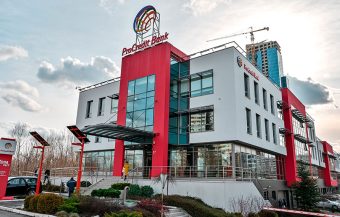
Sustainable development is a phrase used today by all companies in their reports and an excellent backdrop for PR stories. However, sustainability is often used only as an empty phrase, and companies are not serious about dealing with it strategically and systematically. This can become a severe global problem because our planet and humanity’s survival depend on concrete, sustainable business results.
As a concept, sustainability was first used extensively in the business context in the late 20th and early 21st century, when the harmful effects of industry on the environment and society became increasingly obvious. International standards ISO 14001 for environmental protection management and ISO 26000 for corporate social responsibility have become widely accepted. Sustainable development was first implemented in industries that had the greatest impact on the natural environment and society, such as energy, mining, agriculture, construction, textile, and automotive. They were the first to look for solutions to reduce negative environmental impacts. However, our interlocutor does not work in any of these heavy industries; rather, she is a banker. There are several reasons why we are talking to her, and all of us are required to engage.
The path to sustainability is demanding – but there is no alternative
We spoke with Marina Mijić, Head of the Sustainable Development Department at ProCredit Bank, about the motives and ways the banking sector is involved in the global movement of sustainable business strategies. ProCredit Bank is considered a pioneer among financial institutions as it has approached sustainability with full understanding and responsibility and has set goals.
“ProCredit Bank has had sustainable banking as its development focus for over two decades. What does this mean in practice? It means that we have adapted all work processes to sustainable practices – from online banking and strictly controlled consumption of energy and all other resources in our daily work to measuring CO2 emissions, financing sustainable and green projects, and implementing restrictive investment policies towards clients who have not set sustainable goals or started with the green transition. We are the first bank in Serbia to have the Sustainable Development Department. We have hired engineers, environmental specialists and economists who provide advisory and partner support to clients when they decide to change their business to green. Banks today are much more than just banks. We are not just finance providers, but we also give the direction in which the country’s economy should move and shed light on various impacts such an economy will have on the environment and people”, Ms Mijić says.
IN FOCUS:
- PLANT A FLOWER, EMBELLISH THE WORLD
- GREEN PROJECTS OF SERBIAN SCIENTISTS – BIOPESTICIDES FOR PROTECTION OF TREES FROM DEADLY PESTS
- MT-KOMEX BUILT THE FIRST POWER PLANT IN THE EUROPEAN UNION
The bank has been recently validated by the international SBTi initiative, which testifies to the ambitious and strictly defined sustainability goals of the ProCredit banking group.
The bank has determined its short-term goals for reducing harmful emissions in line with the Paris Climate Agreement, and the ProCredit Group is approaching them decisively.
To compare, 500 large global companies did not pass this validation, which speaks volumes about the high standards that ProCredit sets for itself and its clients. Marina Mijić adds that this road is demanding and complex, but there is no alternative.
Humanity is the central figure of sustainability

Regarding sustainability, most people think of the Green Agenda and the measures companies implement to protect the environment. However, human beings are actually at the center of the concept of sustainability.
This statement is true in two respects. First, humans create and manage sustainable practices. The planet’s survival depends exclusively on humanity’s awareness and commitment to solving the problems of pollution, high gas emissions, and energy efficiency. Everything is in mankind’s hands.
On the other hand, sustainable business implies taking care of people equally by providing healthy and stimulating working conditions, open and transparent communication with them, developing employee skills and know-how to fulfil their working potential and providing equal rights for everyone within the company.
Sustainability also implies taking care of people from the immediate and broader social community, especially social groups that require a specific approach to providing financial services.
The importance of mankind for the sustainable future of business and even the planet itself is evidenced by a very interesting point of view that Marina Mijić shared with us: “The world is obsessed with artificial intelligence and all that it can do instead of man. After the initial fascination, AI started to scare us. In such an atmosphere of AI dominance, companies are becoming increasingly focused on people, their feelings, motivation, and work/life balance, as well as creating stimulating programmes for their comprehensive development. The sustainability model is humane in its essence, which means that it seriously counts on people”.
ProCredit Bank
Read the story in the new issue of the Energy portal Magazine NATURE CONSERVATION.

